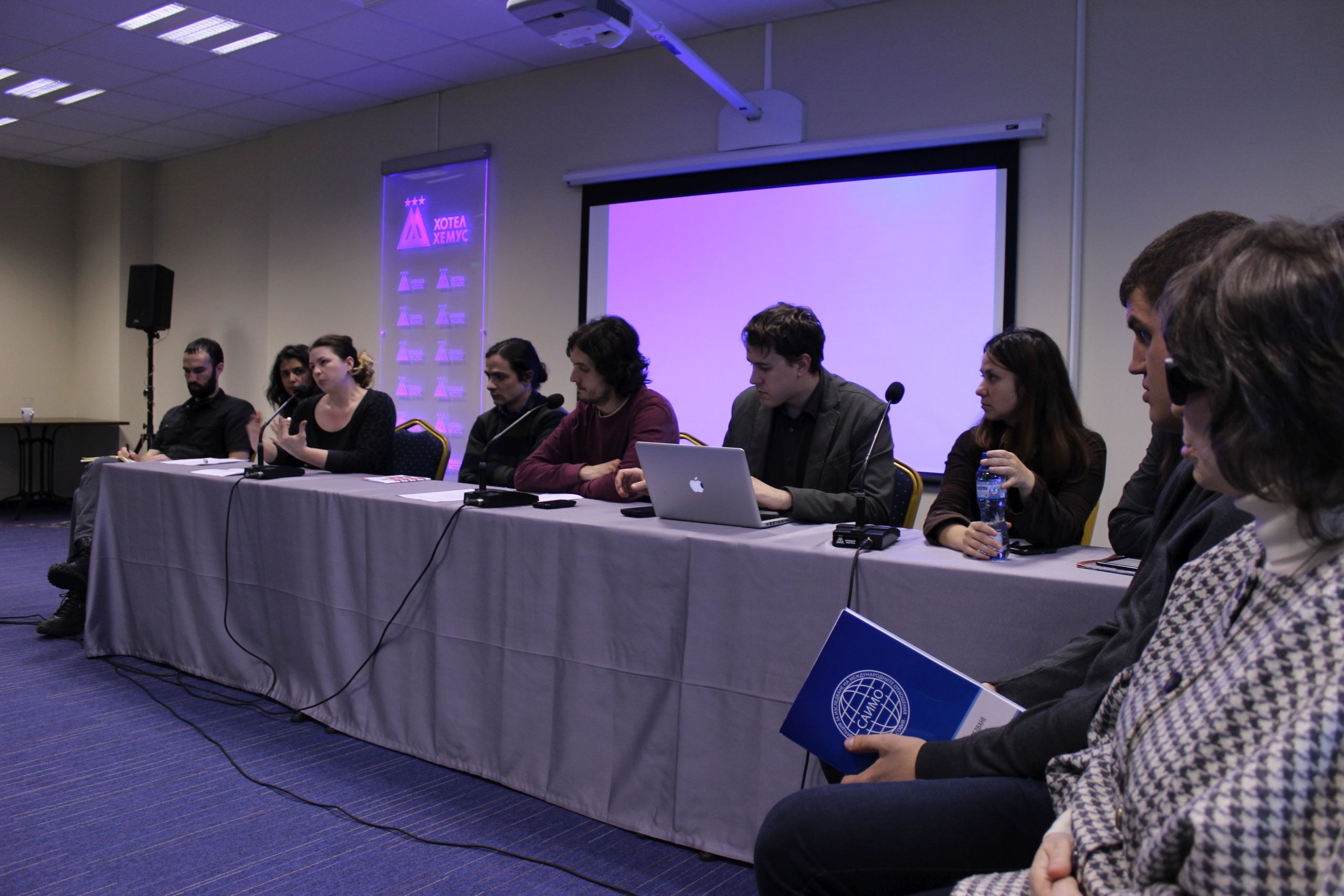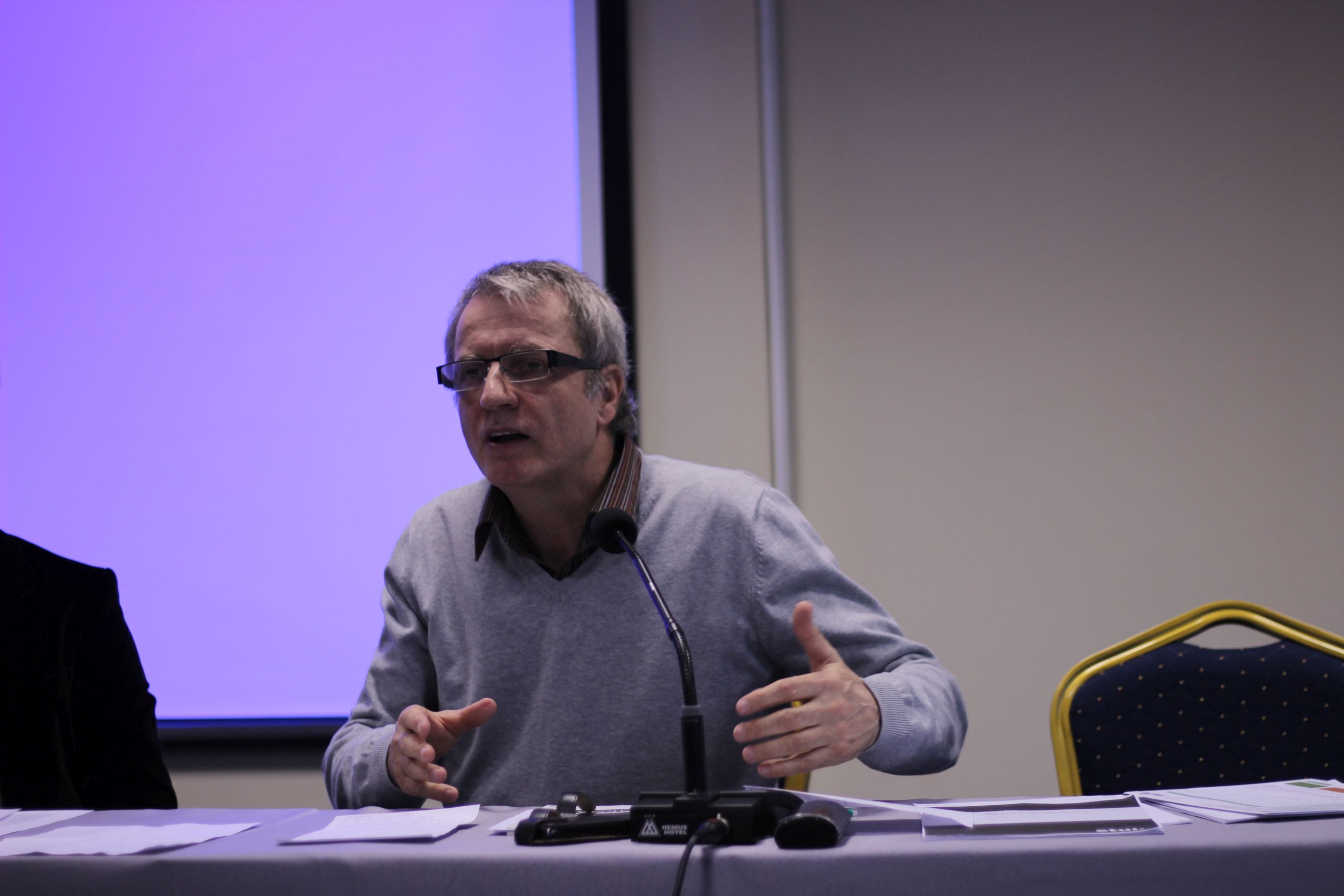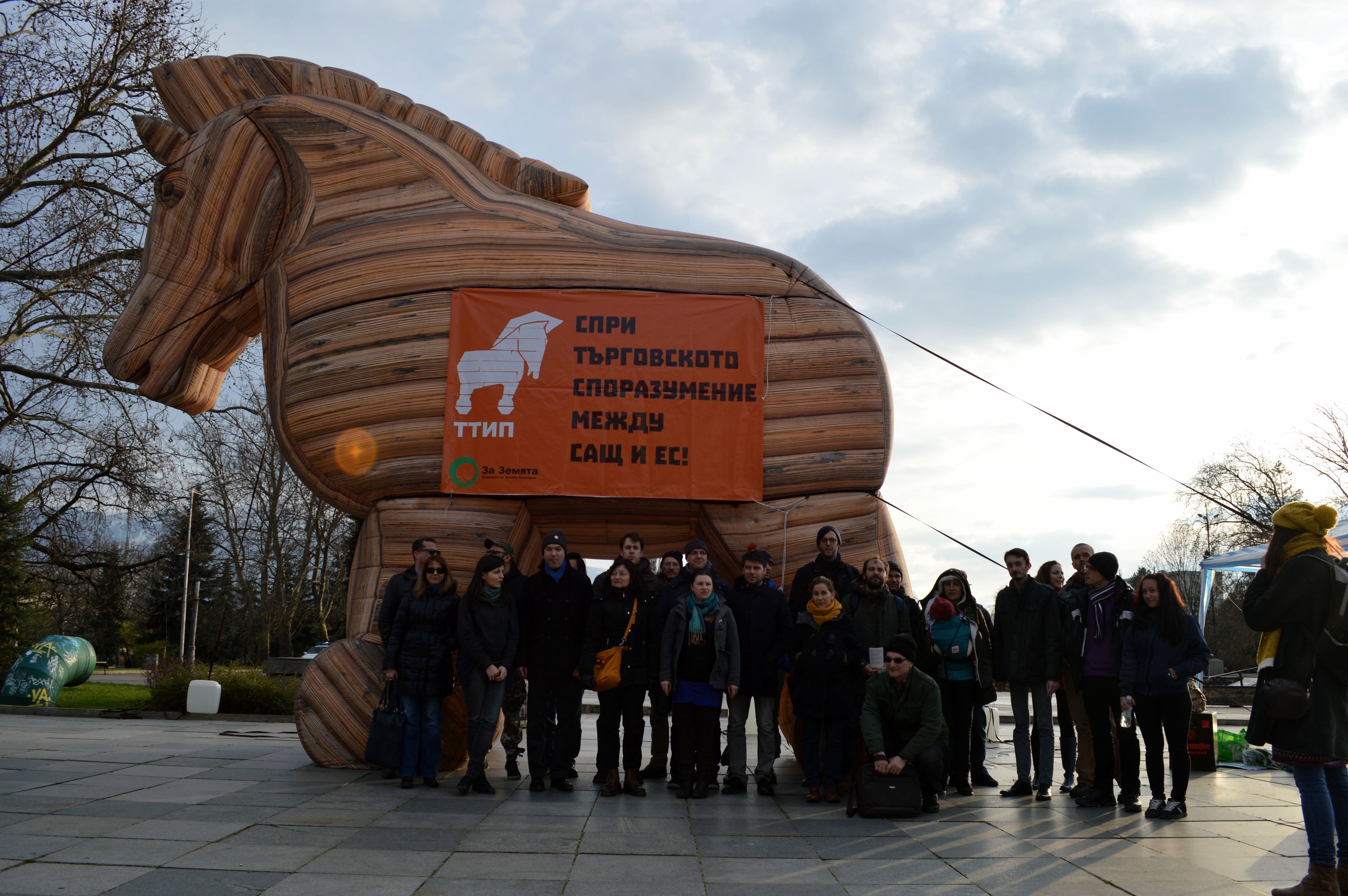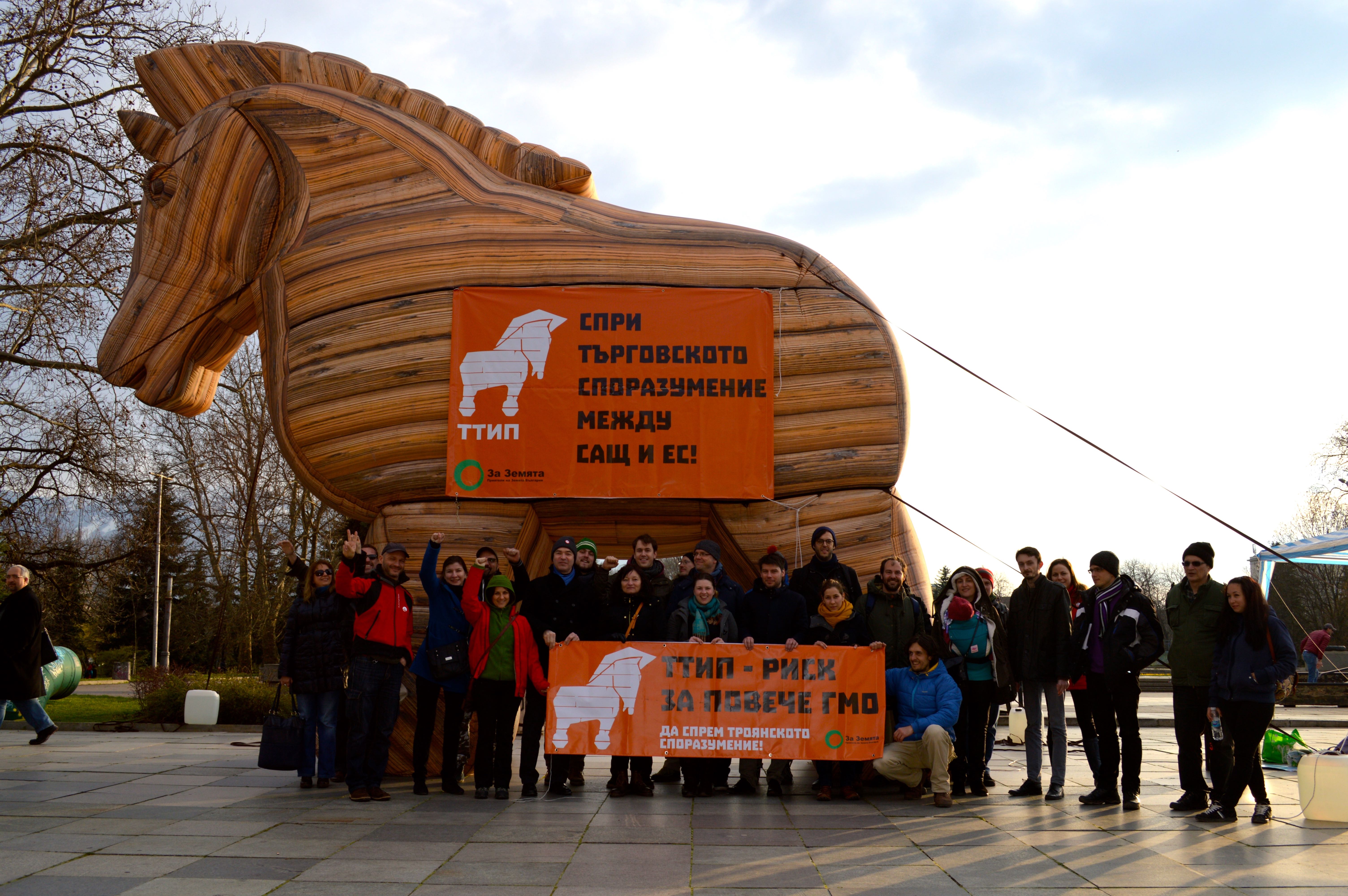Implications of TTIP in Southeast Europe

A seminar entitled "Implications of TTIP in Southeast Europe" took place on the 7 - 8 April 2015 in Sofia, Bulgaria. It brought together activists and engaged researchers who campaign against TTIP (Transatlantic Trade and Investment Partnership). While the focus was on Eastern Europe, the seminar brought representatives of organizations and movements from throughout the continent. Journalists, trade unionists, students, university professors, and activists from civil society organizations discussed two days the potential implications from the TTIP and what could be done to effectively resist it.
Author: Madlen Nikolova
The seminar was hosted by the Collective for Social Interventions and the New Left Perspectives from Sofia, supported by the Rosa Luxemburg Stiftung SEE, and coordinated locally with Solidary Bulgaria and Za Zemiata (the Bulgarian member of Friends of the Earth). On the international level there were representatives of European Citizens Initiative against TTIP and CETA, Attac Austria, Corporate Europe Observatory, War on Want, Pokret za slobodu (Serbia), Terra Mileniul III (Romania), Dezvoltare fără fracturare (Romania), Friends of the Earth Europe and BRID (Croatia), Pražské školy alternativ (Czech Republic), Initiative for Democratic Socialism (Slovenia), Workers Front (Croatia), SYRIZA (Greece) and The Greens (Bulgaria).
The morning of the 7th of April opened with an introductory talk by John Hilary who spoke on the current developments of the anti-TTIP campaign. It was followed by a second introductory talk from Paul-Emile Dupret (GUE/NGL) who focused on the political side and specifically on the relationship between the European Parliament and civil society in the campaign. The day continued with more specific issues related to the TTIP. Kenneth Haar from the Corporate Europe Observatory spoke on regulatory cooperation, that is, the mechanisms that might be introduced with the TTIP to circumvent national and European democratic legislative instruments and to subject regulation to non-transparent technocratic and pro-corporate governance (see more). Haar’s presentation was followed by Mute Schimpf’s talk (Friends of the Earth, Europe) who showed the ways in which food safety standards might be compromised as a result of the US-EU trade and investment deal (see more).
The afternoon on the 7th of April was dedicated to a series of country reports. The current state of the anti-TTIP campaign in Bulgaria, the Czech Republic, Croatia, Greece, Romania, Serbia and Slovenia was presented by local activists. One of the main concerns of activists from Southeast Europe was the way to escape the campaigns being wrongly labeled by the TTIP supporters as campaigns against the US and in favor of Russia. Four separate workshops sessions were organized (implications on labor, on environment, of ISDS and of regulatory cooperation). During the workshops the focus was on the most effective ways to resist TTIP in each particular field.
A public lecture by John Hilary also took place and was well attended by more Bulgarian journalists, activists and other citizens. Hilary presented relevant cases from Bulgaria which suggest the ways TTIP may affect the country. He stated that the agreement may give more power to corporations to contest policies in relation to health care, labor, etc. John Hilary insisted on the need to clarify that this is not a battle between the USA and the EU but a battle waged by corporations against the people in both EU member states and in the USA.
The morning of the 8th of April started with a press conference at the Bulgarian Telegraph Agency. There the campaign and the seminar were presented by members of Solidary Bulgaria, Za Zemiata, Friends of the Earth Europe and New Left Perspectives. The influential unionist and a Syriza MEP Kostadinka Kuneva took part in the press conference. Kuneva stated that TTIP is a very dangerous threat to European citizens’ rights. Ivaylo Popov, member of Za Zemiata, warned that TTIP would allow corporations to require the lowering of standards and the widespread introduction of GMOs and fracking. This is of utmost importance in Bulgaria because the anti-GMO and anti-fracking movements are at the forefront of the anti-TTIP mobilizations.
After the press conference, the participants of the seminar joined an anti-TTIP protest action in Sofia. The protest was organized by Za Zemiata, as they had installed the popular anti-TTIP Trojan Horse near the Monument to the Soviet Army in Sofia. Bulgarian translation of the popular brochure “The Transatlantic Trade and Investment Partnership - A charter for deregulation, an attack on jobs, an end to democracy” by John Hilary was presented, brochures were distributed and citizens informed about the campaign. The brochure was translated by volunteers and published with the support of the Brussels office of the Rosa Luxemburg Stiftung.
The event brought together campaigners from the region to network, but also helped popularize the Bulgarian campaign and strengthen the links between local and international organizations working on the topic.





